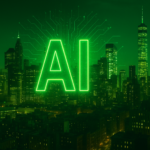This week marks a significant move in enterprise technology, as major companies like Microsoft (NASDAQ:MSFT), Dell, Google (NASDAQ:GOOGL), and SAP deploy new solutions emphasizing AI integration within their core infrastructure. These developments aim to expand the functional boundaries of cloud systems beyond traditional data storage and processing by incorporating advanced AI capabilities. This shift reflects a response to heightened demands on finance, IT, and treasury departments, which, alongside managing traditional workloads, now navigate increasing complexities such as AI and edge computing.
Enterprise systems have periodically evolved to accommodate increasing data and computational needs. Past strategies focused on virtual machines and databases, which met conventional business requirements. However, the current trend of embedding AI within these systems marks a departure from merely enhancing existing frameworks. Microsoft’s SQL Server 2025 epitomizes this trend by infusing AI at database level, enabling operational patterns powered by AI technologies. This innovation differs from legacy approaches by integrating AI directly rather than as an auxiliary feature.
What Are the Latest Initiatives by Big Tech?
This week witnessed a series of announcements pointing to a collaborative venture by tech giants into AI-driven solutions within cloud ecosystems. Microsoft announced the release of SQL Server 2025, hailed as their most significant launch in a decade, aimed at fueling AI development. Meanwhile, Dell introduced new strategies to revolutionize data center operations with a disaggregated infrastructure focus, emphasizing customizability and simplicity in cloud creation.
How Does Automation Reshape Enterprise Environments?
Automation stands as a pivotal feature for enterprises navigating the digital economy, with several multinational corporations forging pathways toward AI innovation. According to PYMNTS Intelligence, a notable fraction of chief financial officers recognize AI’s potential in transforming functions like accounts payable. Google, through updates at its 2025 I/O conference, accelerated AI’s role across its cloud domain, enhancing operational efficiencies.
SAP joined the movement with a suite of agentic AI-focused solutions to encourage cloud adoption. Furthermore, SAP is collaborating with other companies to enhance data integration, aiming to improve AI-driven analytics capabilities. These partnerships highlight an emerging ecosystem where AI is positioned not only as a tool but as a foundational element for future enterprise systems.
Dell’s recent developments introduce a modular approach to private cloud creation, offering rapid provisioning and integration with various software environments. Their innovation addresses specific challenges faced by enterprises with dated ERP systems, offering a transitional methodology that incorporates new functionalities through APIs and microservices rather than replacing entire systems.
Over the years, enterprise innovation has progressively leaned towards automation and streamlining processes. However, recent strides reflect a deeper integration of AI capabilities, championed by giants like Microsoft, Dell, and SAP, seeking to redefine operational frameworks. Such transitions necessitate organizations to anticipate and adapt, paving the way for enhanced efficiency and responsiveness.
In a progressively dynamic digital landscape, it is clear that automation and AI integration will spearhead innovation within enterprise environments. As businesses incorporate AI technologies into core processes, the nature of enterprise infrastructure is poised for continued evolution. Insight into these transformations reveals the strategic positioning by companies to leverage AI as a framework rather than an isolated feature, signaling an era where AI becomes integral to the foundational architecture of enterprise systems.










